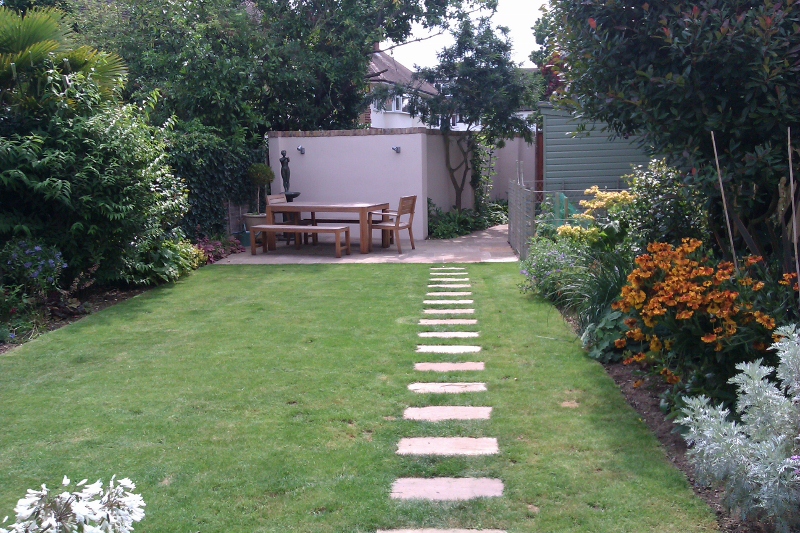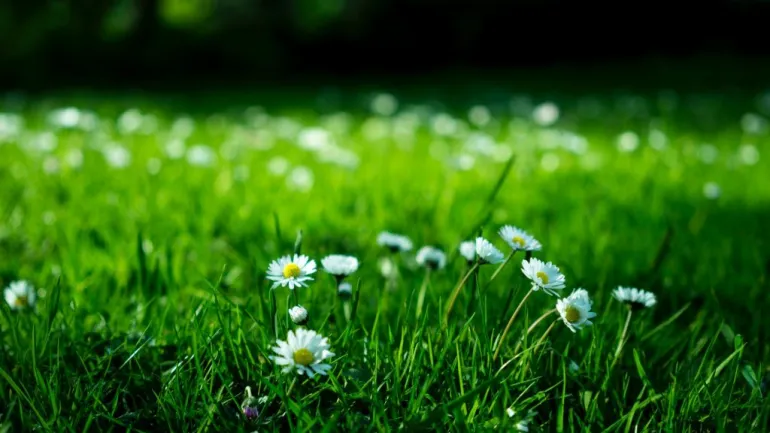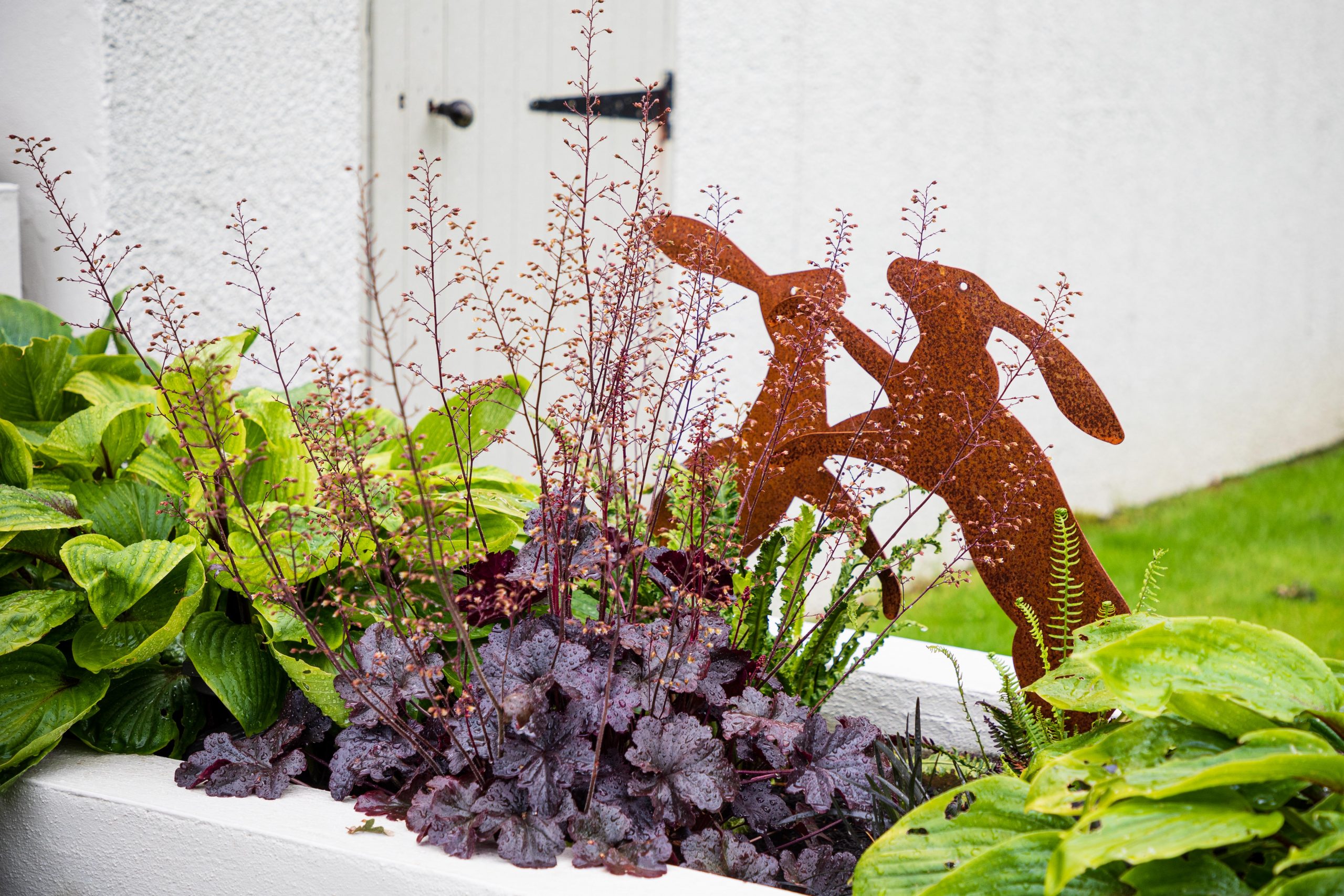How to plan your low maintenance garden
As a self- confessed Lazy gardener and an experienced garden designer, I want to pass on a few tips about planning your garden; that will help you have an easier garden to look after in years to come.
- We all have so little time these days. But plan well and your garden will be a space you can spend more time relaxing in than working on. The more time you spend on planning the less time you will need to spend putting right your mistakes. If you are in a new property, do not rush into any major changes until you have seen a few seasons go by.
- Make a list of why you want a garden. What do you want it to be? Who is it for? Have a big brainstorming session, however fantastical or far-fetched, write everything down, or gather pictures and create a big collage or mind map. Get the whole family involved and be as wild as you can.
- Sleep on it. Take your time and re visit the ideas over the next few days or weeks and take off anything that doesn’t excite you and fill you with joy. Some ideas will start to pop out and a plan will start to take shape of what is really important.
- Think about who you are. What money, time and talent do you have to spend on your garden and be realistic. This is your garden you are planning, not a Chelsea show garden, or a stately home with full time gardeners; so if you think you only have a few hours a month, it might be even less in reality, so work on your ideas with this in mind.
- The best way to create a garden that looks after itself is to understand what you have and work with it, rather than wanting that isn’t suited and having to work hard to keep everything happy. The following points will help with your plant selection for long lasting plants that thrive on their own.
- Really take a proper time out to look at your garden at different times of the day. Look beyond your boundaries, what can you see? Where does the sun rise and set? Which parts of the garden gets the most sun and which the least? Do you have large over hanging trees; either in your garden or next door that affect your light? Take photos at different times of the day to help you remember.
- Do you know what sort of soil you have? Ask a gardening neighbour, or dig a hole and take a look. If you take a handful of soil from a spade depth down and squeeze it together, you should be able to tell a few things. A firm ball that holds together firmly and is light in colour means you may have clay soil, if it is dark and in a loose ball, it could be loamy alternatively if it falls apart and is pale in colour chances are you have a sandy soil. A handful of very wet soil means you might have peat or silty soil. Why do you care? Some plants like wetter soils, others grow best in well-draining sandy soils. You can also get a PH testing kit to see if you have an alkaline, neutral or acid soil.
- Part of your observations should include how much water is naturally in your garden. Big trees take up a lot of moisture. Underground streams or a high water table may give you boggy patches during rainy months. Are you in a tidal area by a river? This will affect the plants you choose and the landscaping you have, a boggy garden needs a path unless you enjoy getting your feet wet.
- Plants need well aerated soil to be able to collect food and moisture from the soil, but air temperature is also something you need to look out for. Is there a part of your garden that gets really cold, is the last to melt after a frosty night? Do you have a wind tunnel that howls through the garden, leaving plants wind burnt and too chilly to sit in even on warmer days? This one is easy to miss. It’s not easily visible and may take time to check.
- Now you have enough information to make a start on your new garden plan. This may mean some of your fabulous ideas may need to adjusted; A Mediterranean garden is not going to work in a shady damp space, your large patio may be best placed part way down the garden to get the most of the sun, and a sunken garden may give you more shelter than a raised deck, but it is so much better to know these things now whilst it is all on paper, rather than spending loads of money and getting it all wrong.




i like this